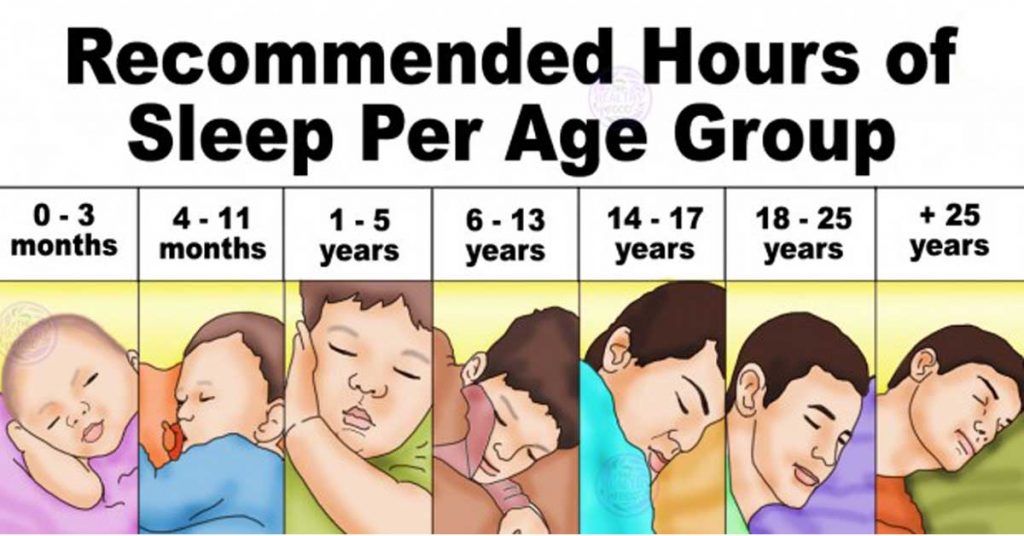This is how much sleep your body needs according the age listed by The National Sleep Foundation. In order to preserve our health and promote proper development our body needs to rest, so you must know how much time is enough for your body to rest and sleep. Here is how many hours of sleep your body needs in order to maintain good health, mental clarity and to have enough energy during the day.
Lack of sleep is a problem for every person.
Physical tiredness is not the only problem we have if we do not sleep enough time. It can also lead to lack of appetite, difficulty to think clearly, to make decisions and even to concentrate.
Many experts have also proved that if you have sleeping problems it can also cause numerous health issues. The heart health can be endangered if you sleep less than 5 hours. Diabetes, obesity and weight gain are a result of sleeping less than 7 hours. So the first thing you need to do is to think about the number of hours that your body needs to sleep. To be aware that the hours you are resting are actually enough is the first step.
Here are the recommended sleeping hours
One research has been conducted by Charles Czeisler — a professor at Harvard University, in order to establish the exact amount of sleep that is recommended. So to get the results there were numerous studies between 2004 and 2014. And the results were obtained when they evaluated the objectives and discovered how much time is enough to rest in order not to have a negative impact on the health.
According to the different stages of development, these are the recommended hours of sleep:
Newborn (0 to 3 months): 14 to 17 hours.
Babies (4 to 11 months): 12 to 15 hours.
Children (1-2 years): 11 to 14 hours.
Preschool (3-5 years): 10 to 13 hours.
School age (6-13 years): 9 to 11 hours.
Teens (14 to 17) : 8 to 10 hours.
Youth (18-25 years): 7 to 9 hours.
Adults (26-64 years): 7 to 9 hours.
Seniors (over 65 years): 7 to 8 hours.
These are not the exact hours. So everyone has its own way to determine the number of hours his body needs. But the number of sleep below the recommended hours of sleep can increase the changes of health problems.
These are the main reasons for sleep problems:
Sleep problems can be a result of two main reasons – Stress and Technology.
Stress: Cortisol, also called the ‘stress hormone’ is releases by stress. And in case of increased level of cortisol it can have a high impact on the feelings of well-being and also hinder restful sleep.
Technology: In order to have a good sleep the body releases melatonin. And the brain cannot release the needed amount of melatonin in the light emitting excessive technological devices. If we are in the dark, we enable the body to release more melatonin, which in presence of the light of televisions, laptop and cell phones is stopped.






